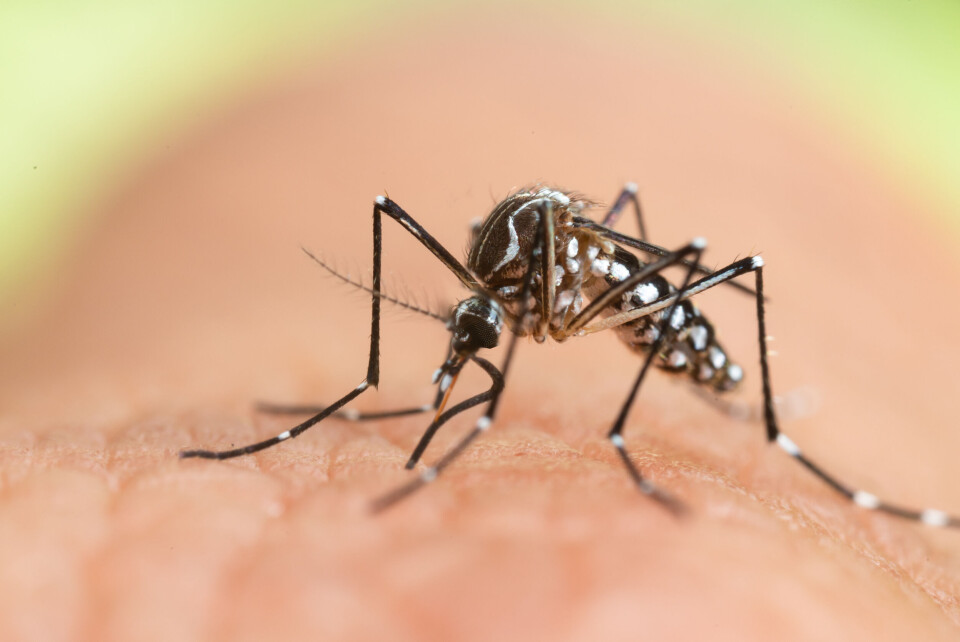-
New luxury Paris-Amalfi sleeper train service
Three-day Orient-Express trip includes hotel stays and Pompeii visit among other excursions
-
Why you can contest a speeding fine when driving to Italy from France
A new initiative has discovered that the majority of Italian speeding fines may be legally void
-
France’s Favourite Village 2026 shortlist announced
You can vote for your favourite until early March
France’s mosquito season is here. Here are tips on how to avoid them
Experts are worried about the increasing presence of disease-carrying tiger mosquitoes in mainland France

The ‘official’ mosquito season is nearly here in France, as surveillance of the increasingly present tiger mosquito begins on May 1.
Tiger mosquitoes are considered to be more dangerous than ‘normal’ mosquitoes because they can carry serious diseases including dengue fever and Zika (although only dengue has been reported in France so far).
The official surveillance season lasts from May 1 to November 30, as mosquitos’ activity peaks during these months.
So far, 65 cases of dengue fever have been reported in France among people who had not travelled to at-risk countries, meaning that they were infected after being bitten on French soil.
Read more: Briton infected with dengue fever in France: where are the risk areas?
Marie-Claire Paty, coordinator of vector illnesses at France’s public health agency, Santé publique France, told Le Point: “65 cases may not seem like a lot, but it’s a sign of a changing dynamic. We believe that this is a risk that will intensify.”
In a recent advisory, the committee for health risks, Covars (le Comité de veille et d'anticipation des risques sanitaires), said that in future, the country can expect to see more cases of dengue and new reports of Zika and chikungunya. All of these illnesses are spread by tiger mosquitoes.
“These [viral illnesses] could become public health problems,” it said.
Tiger mosquito spread
Originally found in tropical forests in southeast Asia, tiger mosquitoes (Aedes albopictus) were first reported in France in 2004. They have since spread across the country, including in many more northern and urban areas (such as Paris).
They are recognisable by their distinctive black and white markings, although, despite their name, they are not much bigger than a common mosquito.
As of January 1, 2023, they had been confirmed in 71 departments. Entomologist (Insect expert) Didier Fontenille said: “Its spread is inevitable…in mainland France it is still mainly just an annoyance. But this could change in years to come.”

Map: Santé.gouv.fr
Global warming and rising temperatures also help the mosquito to spread.
The warmer the temperature, the quicker the mosquito grows, and the more the virus grows inside it, “so the hotter it is, the faster [the mosquito] can spread an infection,” said Anna-Bella Failloux, a specialist in mosquito-related diseases at the Institut Pasteur.
“Overseas, the mosquito is just part of everyday life. In France, we now have to learn to live with it as well,” she said.
How can I avoid getting bitten?
Dr Fontenille said that “the first thing to do is to make their life difficult” and try to avoid the mosquitoes from hatching near your home or garden.
Unlike ‘normal’ mosquitoes (Culex), the tiger mosquito tends to bite the most in the morning and evening, rather than during the night time. It is also silent.
Health authority Anses has the following tips to avoid the insect:
-
Regularly empty or remove any stagnant water, including the cups under flower pots, vases, etc., or fill them with sand in order to maintain humidity without stagnant water
-
Store buckets, gardening equipment, toys, and other containers away from the rain
-
Cover water collection containers with mosquito netting or fabric
-
Clean gutters to allow proper drainage
Related articles
France faces rise in mosquito-borne diseases, warn health experts
Mosquitoes in France: A scientist's advice for keeping them away
























